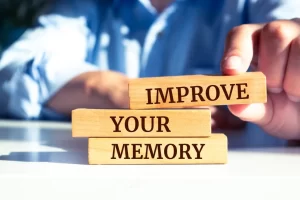Why do I forget something so often? How to Improve Your Memory

Forget Something? Everyday Causes of Memory Slips
Conditions that contribute to memory loss include:
- Depression
- Medication side effects
- Alcohol abuse
- Not enough vitamin B12 or a low thyroid level
- Stress and worry of any kind, such as from the death of a spouse or loved one, or from retirement
- Illness
What’s Normal
- Absentmindedness. This usually occurs, when you aren’t paying close attention to the activity at hand.
- Occasionally forgetting where you placed things.
- Forgetting facts over time. Like computers, our brains need to purge old data to make room for new.
- A “tip of the tongue” memory slip that you remember later.
- Utilizing reminders to help you remember
- Despite memory lapses, if your personality and mood remain the same, it’s a good indicator that it’s probably not something more serious.
Transience
This is the tendency to forget facts or events over time. You are most likely to forget information soon after you learn it. However, memory has a use-it-or-lose-it quality: memories that are called up and used frequently are least likely to be forgotten. Although transience might seem like a sign of memory weakness, brain scientists regard it as beneficial because it clears the brain of unused memories, making way for newer, more useful ones.
Absentminded

This type of forgetting occurs when you don’t pay close enough attention. You forget where you just put your pen because you didn’t focus on where you put it in the first place. You were thinking of something else (or, perhaps, nothing in particular), so your brain didn’t encode the information securely. Absentmindedness also involves forgetting to do something at a prescribed time, like taking your medicine or keeping an appointment.
Persistence
Most people worry about forgetting things. But in some cases people are tormented by memories they wish they could forget, but can’t. The persistence of memories of traumatic events, negative feelings, and ongoing fears is another form of memory problem. Some of these memories accurately reflect horrifying events, while others may be negative distortions of reality.
People suffering from depression are particularly prone to having persistent, disturbing memories. So are people with post-traumatic stress disorder (PTSD). PTSD can result from many different forms of traumatic exposure — for example, sexual abuse or wartime experiences. Flashbacks, which are persistent, intrusive memories of the traumatic event, are a core feature of PTSD.
Suggestibility

Suggestibility is the vulnerability of your memory to the power of suggestion — information that you learn about an occurrence after the fact becomes incorporated into your memory of the incident, even though you did not experience these details. Although little is known about exactly how suggestibility works in the brain, the suggestion fools your mind into thinking it’s a real memory.
Memory strength is just like muscular strength. The more you use it, the stronger it gets. But you can’t lift the same size weight every day and expect to get stronger. You’ll need to keep your brain constantly challenged. Learning a new skill is an excellent way to strengthen your brain’s memory capacity.

memory part of brain
long term memory
memories meaning
where is memory stored in the brain
memory retrieval
different types of memory
how does memory work
how to remember names
memory loss causes
different types of memory
memory definition psychology
how does memory work
memory loss causes
short term memory loss causes
long term memory loss
recall memory
memorization techniques
improve memory
what causes memory loss
cognitive memory
how to remember things
learning and memory
memory techniques
short term memory loss test
memory retention
mnemonic techniques
foods that improve memory
types of memory in psychology
how to remember something
what is memory in psychology
how to memorize things
recall psychology
human memory
ways to improve memory
memory improvement games
how to increase memory
how to improve short term memory
three processes of memory
retrieval psychology
temporary memory loss
memory improvement tips
memory loss symptoms
memory strategies
how to improve your memory
something remembered
what helps with memory
remembering the past
brain and memory
remember something
memory development
increase memory
memory research
improve short term memory
our memories
poor memory
memory training
memory exercises
memory tips
memory improvement techniques
memory method
improve your memory
how to remember things better
how to boost memory
increase brain power
types of human memory
improve concentration
kinds of memory
remembering memories
foods that increase memory
memory skills
exercises to improve memory
improve working memory
